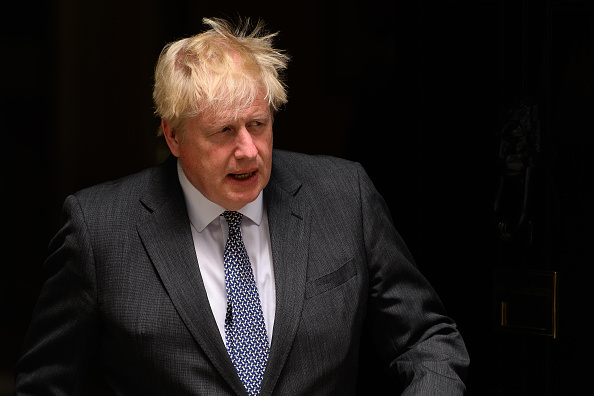Johnson says income tax cuts will only come after inflation falls

Boris Johnson has said he will only bring in promised income tax cuts after the UK’s current bout of inflation has weakened.
The Prime Minister today said the government wants to cut taxes “as fast as we can”, but that the priority is taming an “inflationary spike that we need to get through right now”.
Johnson said in a major setpiece speech last week that he intended to cut taxes and to pursue a smaller state approach to government in a bid to reset his faltering premiership.
It has been rumoured this could include a 2p cut to the basic rate of income tax, after Rishi Sunak announced earlier this year that he would bring in a 1p cut from 2024.
However, any cut to income tax will likely fuel higher consumer spending and stoke inflation further.
UK inflation has hit a 30-year-high of nine per cent and is expected to reach double digits later this year.
Johnson told LBC: “We are bringing in tax cuts as fast as we can, but what we have also got to do is look after people in a tough time so the prior job … the thing that we are doing at the moment is looking after people who are facing increases in the cost of living … that’s why we are putting £1,200 for eight million of the most vulnerable households, £400 to everybody in the country to help with cost of fuel and energy, and another £300 for pensioners.
“Yes of course, I understand that we need to bear down on taxation and we certainly will … but the inflationary spike that we have got to get through right now, looking after people as we go through that and that is what we are going to do.”
It comes as new figures from the Office for National Statistics (ONS) today showed the UK’s economy shrank in April, with Gross Domestic Product (GDP) falling by 0.3 per cent.
The OECD last week predicted the UK has the worst economic prospects out of any G20 country, except for Russia.
Chancellor Rishi Sunak today said: “I want to reassure people, we’re fully focused on growing the economy to address the cost of living in the longer term.”